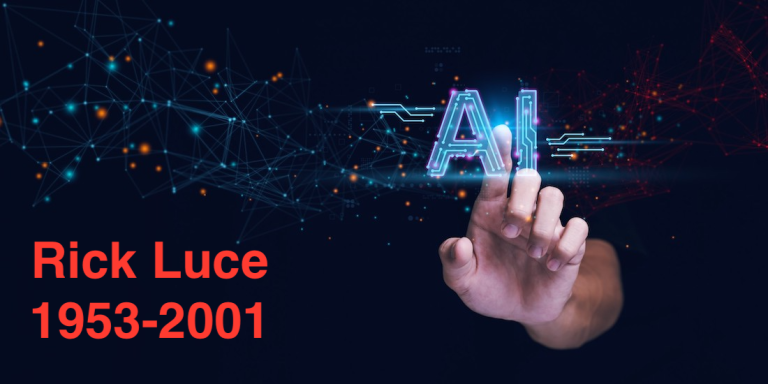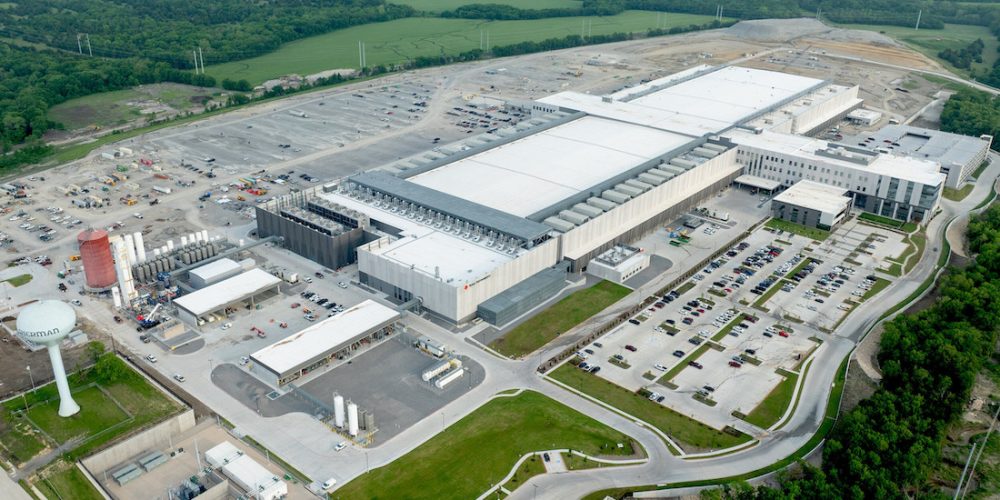
Austin software engineer’s career bridged semiconductor giants and specialized artificial intelligence startup ventures

New York, N.Y. — In the spring of 2001, as the dot-com bubble burst and technology companies struggled to survive, a quiet revolution was brewing in Austin’s artificial intelligence community.

While most of the tech world focused on internet startups and e-commerce ventures, a small cadre of engineers were developing the foundational technologies that would eventually power today’s AI renaissance.
Richard Livingston Luce, who held two master’s degrees from the University of Texas at Austin—a Master of Science in Computer Science (M.S.C.S.) and a Master of Science in Electrical and Computer Engineering (M.S.E.C.E.)—exemplified this pioneering spirit.

After contributing to groundbreaking research at Texas Instruments, Rick Luce transitioned to Momentum Software of Austin, where he spent the final five years of his career specializing in artificial intelligence development.
At age 47, Luce died unexpectedly of pancreatic cancer in spring 2001, just as the AI field he helped nurture was beginning to show its transformative potential.
The Texas Instruments Foundation
Texas Instruments‘ journey into artificial intelligence began not with grand ambitions of creating thinking machines, but with a practical need to process signals more efficiently. In 1982, Texas Instruments developed the first single-chip Digital Signal Processor (DSP), which could convert analog signals into digital form in real-time. This breakthrough would prove instrumental to AI development decades later.
Since introducing programmable digital signal processors in the 1980s, TI has produced families of embedded processors. These processors became the computational foundation for many AI applications, enabling real-time processing of complex data streams that would be essential for machine learning algorithms.
The TMS320 family of digital signal processors, introduced on April 8, 1983, through the TMS32010 processor, which was then the fastest DSP on the market, represented a quantum leap in processing capability. These chips could handle the intensive mathematical operations required for pattern recognition, neural network calculations, and other AI-related tasks that would later become standard at specialized software companies.
TI 2000: A Strategic Vision for the Future
By the late 1980s, Texas Instruments leadership recognized that the company needed to transform itself for the coming technological revolution. In 1989, the CEO inaugurated a strategic plan to radically reshape Texas Instruments, dubbed “TI 2000.” A key aspect of the plan was to loosen the corporation’s traditionally tight corporate culture and encourage innovation.
This cultural shift proved crucial for AI research and for nurturing engineers who would later join specialized AI companies. Engineers like Rick Luce found themselves working in an environment that valued experimentation and cross-disciplinary collaboration. The TI 2000 initiative encouraged researchers to think beyond traditional applications and explore emerging fields like artificial intelligence, machine learning, and neural networks.
The Transition to Specialized AI Development
While Texas Instruments provided the foundational technologies and research environment, the late 1990s saw the emergence of specialized software companies focused exclusively on artificial intelligence applications. Momentum Software of Austin represented this new generation of AI-focused companies, founded to translate research breakthroughs into commercial applications.
Rick Luce‘s transition from Texas Instruments to Momentum Software reflected a broader trend in the industry. Engineers with deep experience in both hardware and software were increasingly drawn to smaller, more focused companies where they could concentrate specifically on AI development rather than the broader semiconductor business.
A Brilliant Mind Lost Too Soon
Rick Luce‘s educational background exemplified the interdisciplinary approach that both Texas Instruments and Momentum Software valued in their AI research initiatives.

His Master of Science in Computer Science from UT Austin provided deep expertise in algorithms, software architecture, and computational theory. His complementary Master of Science in Electrical and Computer Engineering gave him hardware-level understanding of digital signal processors, embedded systems, and the physical constraints that shaped AI implementation.
This dual expertise made Luce particularly valuable to Momentum Software‘s AI development efforts. Computer science provided the theoretical foundation for machine learning algorithms, while electrical and computer engineering offered practical insights into optimizing those algorithms for specific hardware architectures. Engineers with this combination of skills were rare and highly sought after in the emerging field of commercial AI applications.
Luce‘s untimely death from pancreatic cancer in spring 2001 represented not just a personal tragedy, but a loss to Austin’s growing AI community. At 49, he was at the peak of his technical capabilities, with decades of experience bridging semiconductor research and specialized software development. His passing came just as companies like Momentum Software were beginning to demonstrate the commercial viability of AI applications.
In a testament to his values and family commitment, Luce left a portion of his estate to Orphans International, a charity that his younger brother had just incorporated in 2001 with the guidance of their mother. This final act reflected the same forward-thinking perspective that characterized his professional work—investing in causes that would have long-term impact beyond his own lifetime.
Austin: A Growing Technology Hub
During the 1990s and early 2000s, Austin was rapidly emerging as a major technology center, second only to Silicon Valley in its concentration of high-tech companies and research institutions. Texas Instruments‘ Austin facilities had created a talent pool that companies like Momentum Software could draw upon, creating a collaborative ecosystem where AI research could flourish in both large corporations and specialized startups.
The proximity to the University of Texas at Austin provided additional advantages. The Laboratory for Artificial Intelligence opened in 1983, but AI research at the University of Texas began years earlier with pioneering efforts by Woody Bledsoe and Bob Simmons. This academic foundation created a talent pipeline and research collaboration opportunities that benefited both established companies like TI and emerging players like Momentum Software.
The Commercial AI Pioneers

By the mid-1990s, Austin had developed a unique ecosystem where engineers could move between large research-oriented corporations and smaller, more focused AI companies.
Momentum Software represented the entrepreneurial side of this equation, taking the foundational technologies developed at companies like Texas Instruments and transforming them into specialized commercial applications.
Engineers like Rick Luce who made this transition brought invaluable experience from their corporate research background. They understood not just the theoretical possibilities of AI, but also the practical limitations imposed by available hardware and the commercial requirements for viable products.
The Research Environment of 2001
By 2001, Austin’s AI community encompassed both established corporations and specialized software companies. Momentum Software, where Luce spent his final professional years, represented the cutting edge of commercial AI development. The company focused on applications that pushed the boundaries of what was possible with available computing power, requiring exactly the kind of interdisciplinary expertise that Luce possessed.
The research environment at specialized AI companies like Momentum Software during this period was characterized by rapid prototyping and practical application development. Luce‘s background perfectly suited this approach—his computer science training provided algorithmic sophistication, while his electrical engineering expertise ensured practical implementation feasibility. While larger companies often focused on long-term research, specialized AI companies were developing technologies that could be commercialized immediately.

Legacy and Impact
The work done by engineers like Rick Luce at companies like Momentum Software in Austin during the late 1990s and early 2000s may not have generated immediate headlines, but it laid crucial groundwork for today’s AI revolution. Luce‘s career trajectory—from semiconductor research at Texas Instruments to specialized AI development at Momentum Software—represented the kind of cross-pollination that would prove essential for AI advancement.
Luce‘s dual expertise in computer science and electrical engineering, combined with his experience in both corporate research and specialized software development, made him part of a small community of engineers who understood both the theoretical possibilities and practical limitations of AI implementation. His work at Momentum Software helped bridge the gap between laboratory research and commercial applications.
The tragic loss of Rick Luce to pancreatic cancer in spring 2001 came at a pivotal moment in computing history. Companies like Momentum Software were demonstrating that specialized AI applications could be commercially viable, paving the way for the industry transformation that would follow. Even in death, Luce‘s commitment to making a positive impact continued through his bequest to Orphans International, demonstrating the same long-term vision that characterized his technical work.
The spring of 2001 marked not just the end of the dot-com boom, but also the quiet conclusion of a foundational chapter in AI development. While the world focused on the dramatic rise and fall of internet companies, engineers like Luce at specialized firms like Momentum Software were methodically building the commercial applications that would eventually enable the AI transformation we witness today.
Summary
Austin engineer Richard “Rick” Luce contributed to artificial intelligence development, transitioning from foundational research at Texas Instruments to specialized AI work at Momentum Software during his final five years. Luce, who held dual master’s degrees from UT Austin, died unexpectedly of pancreatic cancer at 49, leaving a bequest to Orphans International, a charity his brother incorporated in 2001.
#Austin #ArtificialIntelligence #MomentumSoftware #TexasInstruments
#AIHistory #TechStartup #Innovation #AIResearch #TechPioneer
TAGS: artificial intelligence, Austin, Momentum Software, Texas Instruments, Richard Luce, Rick Luce,
AI development, tech startup, semiconductor research, machine learning, Austin tech history,
AI pioneer, software engineering, computer science, electrical engineering, AI commercialization
